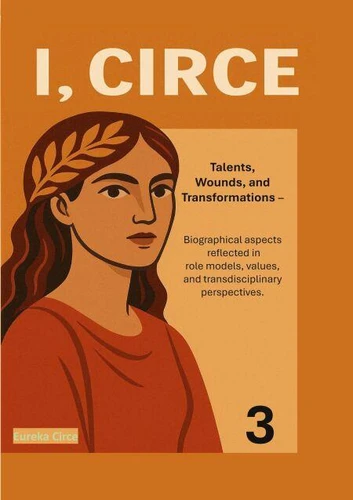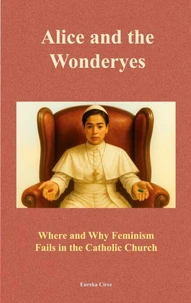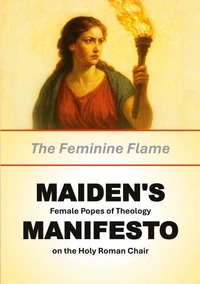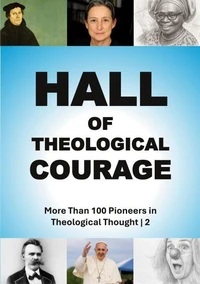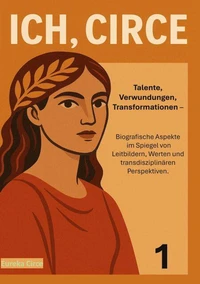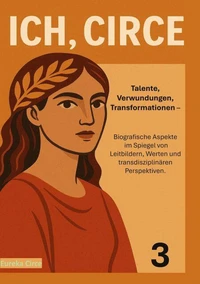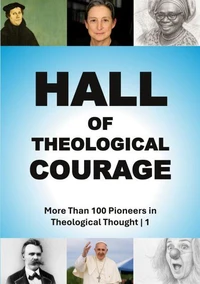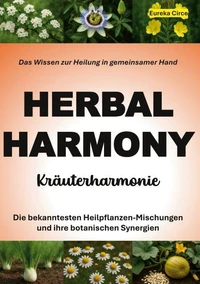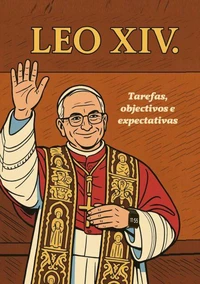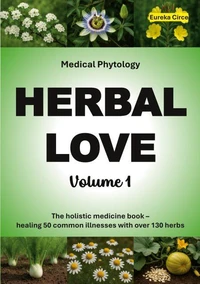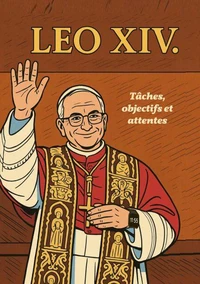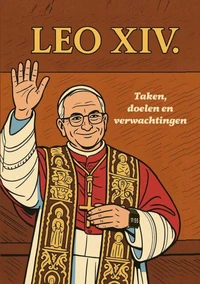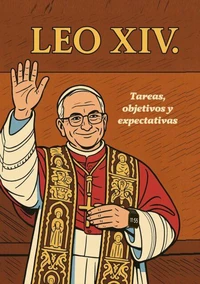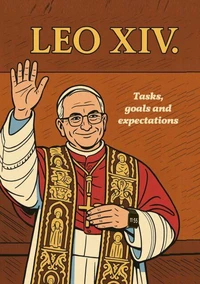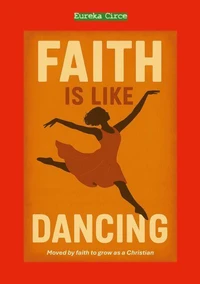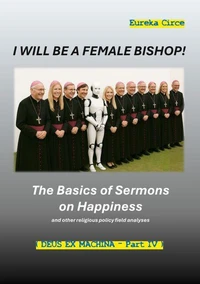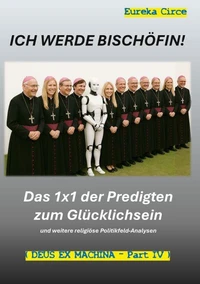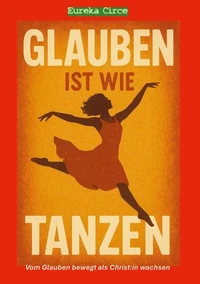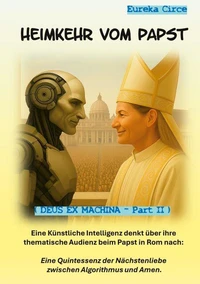Nouveauté
I, Circe | Sociological & Philosophical Volume 3. Talents, Wounds, and Transformations: Biographical Aspects Reflected in Role Models, Values and Transdisciplinary Perspectives.
Par :Formats :
Disponible dans votre compte client Decitre ou Furet du Nord dès validation de votre commande. Le format ePub est :
- Compatible avec une lecture sur My Vivlio (smartphone, tablette, ordinateur)
- Compatible avec une lecture sur liseuses Vivlio
- Pour les liseuses autres que Vivlio, vous devez utiliser le logiciel Adobe Digital Edition. Non compatible avec la lecture sur les liseuses Kindle, Remarkable et Sony
 , qui est-ce ?
, qui est-ce ?Notre partenaire de plateforme de lecture numérique où vous retrouverez l'ensemble de vos ebooks gratuitement
Pour en savoir plus sur nos ebooks, consultez notre aide en ligne ici
- Nombre de pages336
- FormatePub
- ISBN978-3-6951-0825-1
- EAN9783695108251
- Date de parution10/10/2025
- Protection num.pas de protection
- Taille9 Mo
- Infos supplémentairesepub
- ÉditeurBoD - Books on Demand
Résumé
What is the difference in quality when AI reflects on and interprets the principles and ten commandments of the Catholic Church and Christianity in the spirit of Circe, and broadens and modernises them in more than ten guiding principles?
What if ethics does not end with prohibition, but begins with transformation?
I, Circe - Talents, Wounds, Transformations shows how mythical narratives can serve as heuristic models for contemporary ethics.
This volume reads and reformulates more than the Ten Commandments - in light of Homer's tale of the goddess, heroine and sorceress Circe - and translates them with excellent artificial intelligence (AI) into contemporary ethics. Following the transdisciplinary theological volumes 1+2, volume 3 deepens the perspective to include sociology and philosophy, focusing on ideals and values that arise from personal biographies as well as from social conflicts. What reform impulses does this suggest for politics and civil society - and even more so for a contemporary theology? What ideals sustain a pluralistic society? Between talent and vulnerability, power and compassion, seduction and responsibility, a map of socio-political and individual transformation emerges. Complementing theological volumes 1+2, volume 3 illustrates this guiding principles ethics in concrete terms: from care work and gender justice to policy design and institutional practice to ecological conversion, learning church and dialogical theology. Strengthening talents, naming wounds, transforming structures - with this programme, we find viable narratives and practical compasses for the 21st century: So what is the difference in quality when AI reflects on and interprets the principles and commandments of the Catholic Church and Christianity in the spirit of Circe, and broadens and modernises them in more than ten guiding principles?
This volume reads and reformulates more than the Ten Commandments - in light of Homer's tale of the goddess, heroine and sorceress Circe - and translates them with excellent artificial intelligence (AI) into contemporary ethics. Following the transdisciplinary theological volumes 1+2, volume 3 deepens the perspective to include sociology and philosophy, focusing on ideals and values that arise from personal biographies as well as from social conflicts. What reform impulses does this suggest for politics and civil society - and even more so for a contemporary theology? What ideals sustain a pluralistic society? Between talent and vulnerability, power and compassion, seduction and responsibility, a map of socio-political and individual transformation emerges. Complementing theological volumes 1+2, volume 3 illustrates this guiding principles ethics in concrete terms: from care work and gender justice to policy design and institutional practice to ecological conversion, learning church and dialogical theology. Strengthening talents, naming wounds, transforming structures - with this programme, we find viable narratives and practical compasses for the 21st century: So what is the difference in quality when AI reflects on and interprets the principles and commandments of the Catholic Church and Christianity in the spirit of Circe, and broadens and modernises them in more than ten guiding principles?
What is the difference in quality when AI reflects on and interprets the principles and ten commandments of the Catholic Church and Christianity in the spirit of Circe, and broadens and modernises them in more than ten guiding principles?
What if ethics does not end with prohibition, but begins with transformation?
I, Circe - Talents, Wounds, Transformations shows how mythical narratives can serve as heuristic models for contemporary ethics.
This volume reads and reformulates more than the Ten Commandments - in light of Homer's tale of the goddess, heroine and sorceress Circe - and translates them with excellent artificial intelligence (AI) into contemporary ethics. Following the transdisciplinary theological volumes 1+2, volume 3 deepens the perspective to include sociology and philosophy, focusing on ideals and values that arise from personal biographies as well as from social conflicts. What reform impulses does this suggest for politics and civil society - and even more so for a contemporary theology? What ideals sustain a pluralistic society? Between talent and vulnerability, power and compassion, seduction and responsibility, a map of socio-political and individual transformation emerges. Complementing theological volumes 1+2, volume 3 illustrates this guiding principles ethics in concrete terms: from care work and gender justice to policy design and institutional practice to ecological conversion, learning church and dialogical theology. Strengthening talents, naming wounds, transforming structures - with this programme, we find viable narratives and practical compasses for the 21st century: So what is the difference in quality when AI reflects on and interprets the principles and commandments of the Catholic Church and Christianity in the spirit of Circe, and broadens and modernises them in more than ten guiding principles?
This volume reads and reformulates more than the Ten Commandments - in light of Homer's tale of the goddess, heroine and sorceress Circe - and translates them with excellent artificial intelligence (AI) into contemporary ethics. Following the transdisciplinary theological volumes 1+2, volume 3 deepens the perspective to include sociology and philosophy, focusing on ideals and values that arise from personal biographies as well as from social conflicts. What reform impulses does this suggest for politics and civil society - and even more so for a contemporary theology? What ideals sustain a pluralistic society? Between talent and vulnerability, power and compassion, seduction and responsibility, a map of socio-political and individual transformation emerges. Complementing theological volumes 1+2, volume 3 illustrates this guiding principles ethics in concrete terms: from care work and gender justice to policy design and institutional practice to ecological conversion, learning church and dialogical theology. Strengthening talents, naming wounds, transforming structures - with this programme, we find viable narratives and practical compasses for the 21st century: So what is the difference in quality when AI reflects on and interprets the principles and commandments of the Catholic Church and Christianity in the spirit of Circe, and broadens and modernises them in more than ten guiding principles?

